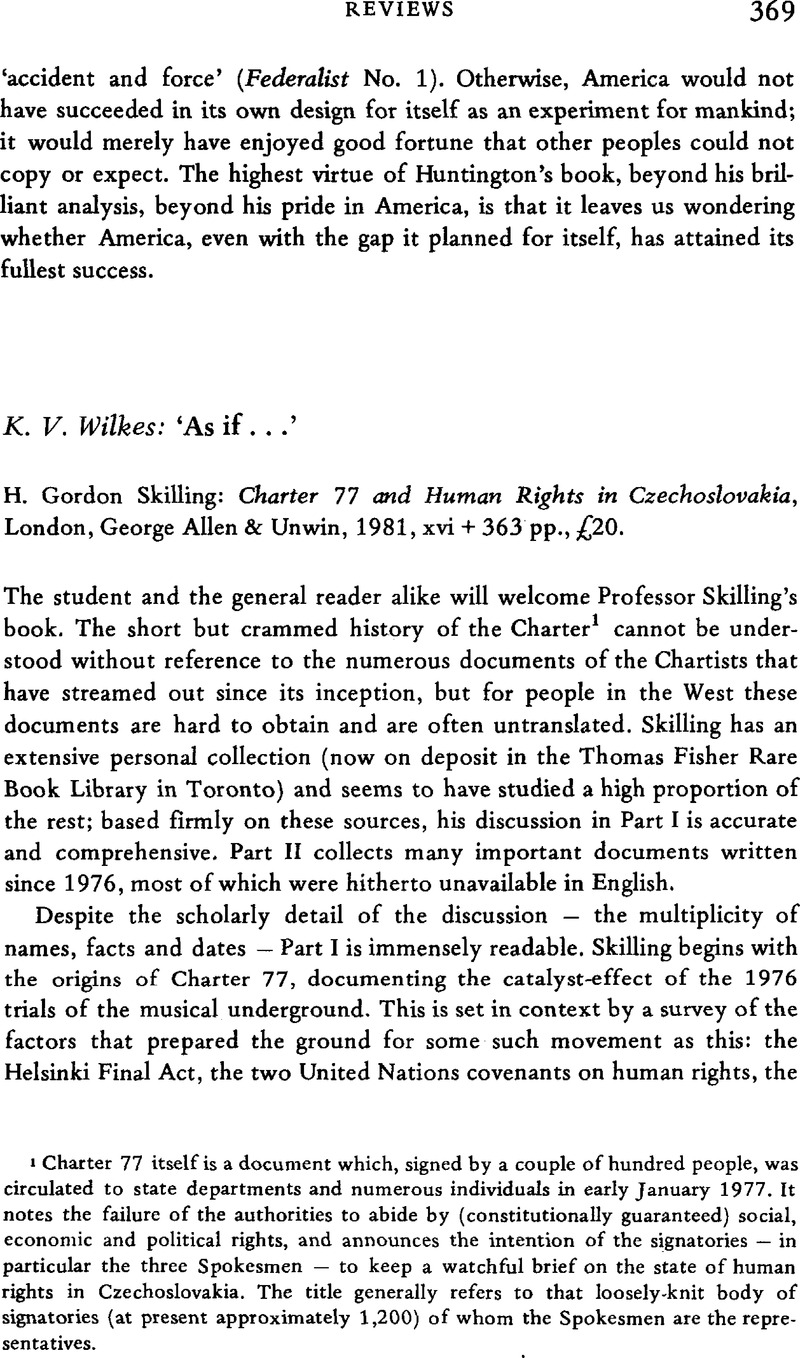No CrossRef data available.
Article contents
‘As if…’ - H. Gordon Skilling: Charter 77 and Human Rights in Czechoslovakia, London, George Allen & Unwin, 1981, xvi, 363, pp., £20.
Published online by Cambridge University Press: 28 March 2014
Abstract

- Type
- Reviews
- Information
- Copyright
- Copyright © Government and Opposition Ltd 1982
References
1 Charter 77 itself is a document which, signed by a couple of hundred people, was circulated to state departments and numerous individuals in early January 1977. It notes the failure of the authorities to abide by (constitutionally guaranteed) social, economic and political rights, and announces the intention of the signatories ‐ in particular the three Spokesmen ‐ to keep a watchful brief on the state of human rights in Czechoslovakia. The title generally refers to that loosely‐knit body of signatories (at present approximately 1,200) of whom the Spokesmen are the representatives.
2 As I was writing this review, the news came from Poland that KOR (the Committee for Social Self‐Defence) had disbanded itself; the reason given was that it had no further specific role. This, more than anything else, illustrates the difference between Czechoslovakia and Poland; were the Charter, or VONS, to close down it would assuredly not be for that reason (cf. also note 4). Unhappily it is the relentlessly‐persecuted human rights groups in the Soviet Union to which the Charter, and VONS, approximate most closely. (N. B.: the review was written before the military takeover in Poland.)
3 VONS is the name of a small group of Chartists, forming ‘The Committee to Defend the Unjustly Prosecuted’. It documents in exhaustive detail all cases of questionable prosecution or sentencing; it is a kind of internal Amnesty.
4 The most recent VONS communiqué (autumn 1981) reports that if the persecution of VONS members continues at its present level, they may have to suspend their activities.
5 Skilling describes the generally disappointing level of publicity and support in the West. It is indeed disappointing; little has been heard, for instance, of the impending trial of seventeen individuals prominent in the samizdat enterprises, or the recent trial of six Catholics. The technicolour events in Poland, Iran, Egypt etc. force the monochrome grimness of Czechoslovak repression off the media pages (and even with technicolour horrors familiarity breeds boredom; mass executions in Iran now rate a small paragraph). More substantially, though, there is genuine uncertainty in the West about the most effective forms of support. Many Chartists ask for no publicity at all; others may ask for efforts in international diplomacy rather than for protest letters or newspaper articles, or vice versa. Individuals in Western Europe who know a little about Czechoslovak events have a well‐grounded fear that the wrong kind of support at the wrong time can increase the dangers run by the very people they are hoping to assist; links with the West have featured only too often in interrogations and prosecution charges.




